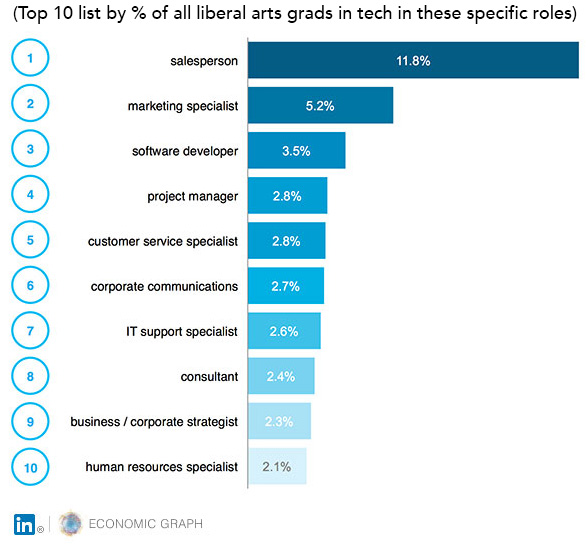Tech and Liberal Arts in the US and Germany
While tech and the liberal arts often have a rocky relationship, the marriage of these two disciplines is a lot happier in the US than it is in Germany. In the August 16th edition of Forbes, George Anders explains why the formerly useless liberal arts degree was become the hottest ticket in tech, using the example of Slack, whose co-founder and CEO Stewart Butterfield is a philosophy major:
“Studying philosophy taught me two things,” says Butterfield, sitting in his office in San Francisco’s South of Market district, a neighborhood almost entirely dedicated to the cult of coding. “I learned how to write really clearly. I learned how to follow an argument all the way down, which is invaluable in running meetings. And when I studied the history of science, I learned about the ways that everyone believes something is true–like the old notion of some kind of ether in the air propagating gravitational forces–until they realized that it wasn’t true.”
Valuable skills. Slack employs a number of people with non-technical backgrounds in roles that range from the creative to the old grind of sales and marketing. Tech businesses are businesses, first and foremost, so they need people who can interact with customers, understand their needs, and equip them with solutions to their day-to-day problems. It’s easier than ever before to create apps, because there’s so much library code floating around (much of it free open source,) but the abundance of code doesn’t immediately translate into making lives better and businesses more efficient until it’s tailored like a custom suit.
Open Table is a great study. Like so many other companies, it started as a pure technology play that enabled people to book reservations quickly and easily, but it quickly morphed into a more comprehensive IT solution for restaurants when the company discovered its ability to book dining reservations outstripped the capacity of restaurants to handle them. Now Open Table works with client restaurants on promotions to bring in diners during slack periods:
On a recent visit to Town Hall, a San Francisco restaurant that specializes in country ham and other southern-inspired cuisine, [Open Table’s] Ramona and a colleague, Denise Capobianco, suggested that restaurant manager Bjorn Kock wasn’t doing enough to attract large groups.
Kock bristled. “Our design does not lend itself to a lot of large parties,” he declared. Big groups take too long to finish, he explained. Their rush of orders at the same time strains the kitchen. Besides, his restaurant’s long, angular layout would make big tables as unwelcome as a boulder in the midst of a stream. “Those tens!” he declared with a dismissive sweep of his hand. “I don’t want them in our dining room.”




